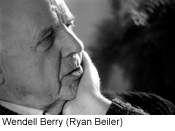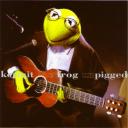To the best of my knowledge, I just made that second word up, and claim dibs on it. But it is on my mind these days as I progress through the dissertation, prepare for and teach my slate of classes, and becoming gradually – though inexorably – more involved in the church we have been attending since September.
In my academic work, I have discovered that I gravitate toward questions of identity and of community formation. Students are beginning to figure out that I can be sidetracked by an innocent question like “what motivated the early Christians to begin to congregate as individual communities?” or “why did the Qumran community feel it was necessary to remove themselves from Jerusalem to the Judean wilderness?” But as a Baptist – cum – Anglican, I find myself increasingly suspicious of grand claims of macro-level, galvanizing forces that link big categories and big metanarratives to small communities. In other words, we need to take the Qumran communities as representative only of themselves; we need to look at the ancient church of Lyons or Laodicea or Jerusalem as representative only of their own community. We can’t just assume that they were part of the “big narrative of XYZism or XYZianity.” Whatever major trends were blowing in the wind in first and second century Judaisms and Christianities, what we can be sure of is that individual communities adopted or rejected certain trends on the grounds of whether they were consonant with what these communities believed to be true and that helped foster the particular mission of each.
“Ecclesiography” is my term describing the contemporary movement of “writing about the church,” or perhaps even better, “writing to create the (new) church.” It includes blogging, publishing important new books, distributing scandalous new tracts, and so on and so forth. There is a lot of this going on, particularly by people I count among my friends and acquaintances. People are eating this stuff up, particularly the ’40 and under’ crowd, as well we should be, because this new “ecclesiographical” writing, intended to inspire a new conception of what it means to “do church” or what it means to “be church” or even “do/be Christian.” I am all for this, because, as ecclesiographers such as Donald Miller, Brian McLaren, Pete Rollins, and countless other writers and bloggers (including this one) have said repeatedly, the way we are “doing church” is just not working the way it once did. We need something new.
But we may justifiably ask whether or not ecclesiography is really giving it to us. (For the record: God, I hope so. Lord knows we need it.) Church communities have, throughout their histories, been galvanized by revolutionary, prophetic writing. This obviously includes Scripture, but it also includes other writings as well. It may be too early to tell. But it seems to me that ecclesiography is having strong impact on the personal, individual level, but much less so at the institutional level, either in the local individual parish or at the big denominational or megachurch levels. At the beginning of this decade, evangelical megachurches in the Syracuse area were swarming with memberships and regular attenders. While they still do well relative to the “non-megachurch” contingent, over the last 10 years these big churches have ALL seen dramatic dropoffs in attendance and memberships, in spite of being on the cutting edge of evangelical thinking. Mainline churches have fared a bit better only in that many of them have simply held steady, but there is a high degree of turnover while maintaining more or less the same overall numbers. And fundamentalist churches are in serious decline. Catholic churches are closing their doors and selling off their properties. At all levels, including my own church, parishes are in jeopardy of losing their pastors because they can’t pay them. Just at the local Syracuse-area level, the numbers are affecting all three of these “big categories,” even though many of them are receptive to the ideas of McLaren, Rollins, Miller, and even me about revolutionizing the way we conceive of being Christian and being the ekklesia of God. I’ve yet to encounter a church of any denomination that is resistant, for example, to the current trend of becoming “missional” or building a “missional” church, a word that entered into the vocabulary of the churches in the late 90s as a result of McLaren’s popularizing of it from Lesslie Newbigin’s use.
But that’s part of the problem. As a result of its popularizing by many of these new gifted ecclesiographers, “missional” has already been denuded. What does it mean? My suspicion is that churches are not using the term in the same way from church to church. My friend the ultrarev, for example, just the other day posted a piece on his blog on the missional church and his desire to plant one somewhere. But they’re already everywhere, and they’re losing members like crazy, because we don’t know what it means! I can imagine Socrates, today, engaging in a dialogue with McLaren over “missional.” As much as I like Brian, I can’t help but feeling that even he, like Meno, would ultimately (good-naturedly, of course) accuse Socrates of being a sting-ray who has numbed his mind and have to recognize that, at the moment, the best we can do with “missional” is identify and describe its attributes better than we can actually define the quality that makes all churches that claim the title as “missional.” My suspicion is that we tend to use “missional” to describe our “ideal church,” meaning quite literally a church that embodies all the qualities that we believe are essential, necessary, good, and “true.”
As I see it, “missional” has become one of those “big categories” that is being coopted and, perhaps, inappropriately applied at a macro-level of Christianity that is itself largely a myth. This happened with “emergent” just recently, and I’m seeing it again here with “missional:” It’s turned into a Movement. This happens when readers of any new work or argument, like that of the Ecclesiographers, take their work and their arguments seriously and see themselves as becoming part of what they represent and attempt, with however limited success, to impart the wisdom of “missional Christianity” to their church community. But what has happened with “missional” is that it is, so far, showing itself to not be radical enough, which means that it can be adopted and coopted by those churches who really have no business employing it. It is becoming a more user-friendly and less-freighted term for “gospel-centered”, which is – or ought to be – synonymous with “evangelical.” Which is to say that the use of “missional” is to cast into new terms what we have been doing all along…which isn’t working. The consequence of this lack of precise definition and “exacting control of context,” as Wendell Berry puts it in his masterful article “In Distrust of Movements,” is that the term can be preempted even by its enemies. Prepackaged, uncritical, consumerist versions of Christianity are now suddenly “The Biblical Church of our Missional Lord,” offering us what they have always offered, and the Movement fails. (Mr. Berry’s full article can be found in his collection of essays entitled Citizenship Papers.)
I hope that the Missional, Ecclesiographical writers that are now doing so much important work keep doing it and do not get discouraged. But in the meantime, what does this mean for the rest of us, who attend declining, failing churches that are both broken and broke? Simply labeling ourselves as “missional” or “emergent” or “postmodern” or anything else is not going to fix us as long as we identify our primary problems as a single-issue problem that can be addressed by a single-issue solution. What is needed – and what the eccesiographers are giving us! – is a full diagnosis, and enough people with knowledge, skills, motives and attitudes that are unique to the specific needs of each local church. The problem: Where is everyone?
We can read our ecclesiographers until we’re run out of material, and agree with every word they write, but until we actually start doing something and defining as precisely as we can what “missional” means in the context where it is needed or used we are going to continue to slide towards irrelevancy.
The harvest is long, but the laborers few.



 Much of contemporary education, however, focuses on the development of “skills” that will make people productive not in their own local community, wherever that may be, but in the global industrial and consumer-capitalist economy. I agree again, here, with Berry, who argues that schools – by which Berry means public schools – are “mind dominated” by outside forces (the global industrial/capitalist doctrine) that essentially dictate what students are to take away from their education. In my work in New Testament, Judaism, Greco-Roman religion, Early Christianity, and Islam, scholars know this kind of imposed “mind domination” by the terms of “cultural hegemony,” stemming from work of Antonio Gramsci. Cultural hegemony is the essentially the ability of those in power (from small communities to global industry and national governments) to package thoughts. It is the ability to control “knowledge production” by packaging the hegmonic power’s ideology into the distillation and dissemination of culture.
Much of contemporary education, however, focuses on the development of “skills” that will make people productive not in their own local community, wherever that may be, but in the global industrial and consumer-capitalist economy. I agree again, here, with Berry, who argues that schools – by which Berry means public schools – are “mind dominated” by outside forces (the global industrial/capitalist doctrine) that essentially dictate what students are to take away from their education. In my work in New Testament, Judaism, Greco-Roman religion, Early Christianity, and Islam, scholars know this kind of imposed “mind domination” by the terms of “cultural hegemony,” stemming from work of Antonio Gramsci. Cultural hegemony is the essentially the ability of those in power (from small communities to global industry and national governments) to package thoughts. It is the ability to control “knowledge production” by packaging the hegmonic power’s ideology into the distillation and dissemination of culture.  Kermit’s serenade from the first season of Sesame Street in 1970 finds itself as the title of
Kermit’s serenade from the first season of Sesame Street in 1970 finds itself as the title of 
